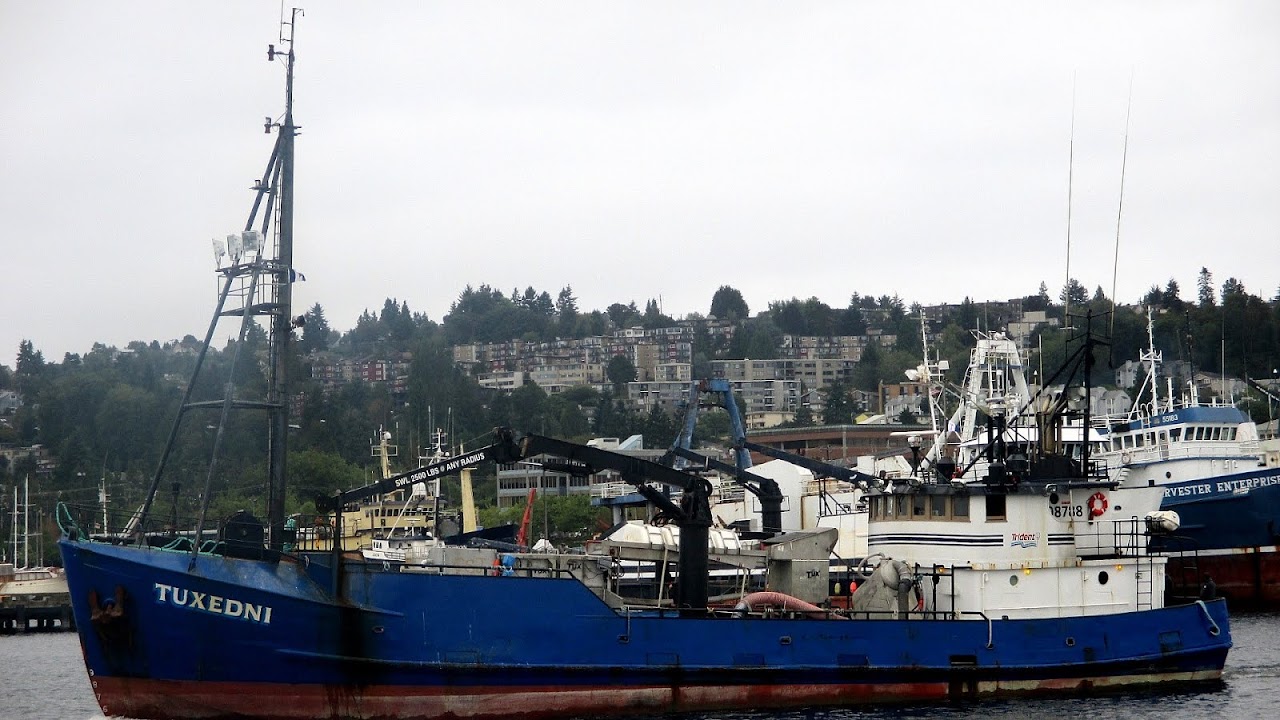
Trident Seafoods is the largest seafood company in the United States. It is based in Seattle, Washington. It manages a network of fishing ships, processing plants, and a vertically integrated distributorship of its products. It sells frozen, canned, smoked and ready-to-eat seafood products for the wholesale, retail and food service markets under a variety of different brand names.
It is a member of the Pacific Whiting Conservation Cooperative.

Maps, Directions, and Place Reviews
History
The company was founded in 1973. In 1986, it merged with ConAgra's Northwest Pacific seafood unit, retaining the Trident name, and with ConAgra holding a 45% stake in the new company. In 1995, ConAgra sold most of its interest to Trident's original private owners.
A leader in the consolidation of the seafood industry since the 1990s, the company has made numerous acquisitions, increasing its operations and market presence. Some of these acquisitions with their associated brands are:
- ConAgra (1986 - see above). Along with the merger came ConAgra's Sea Alaska and Lily brands.
- Farwest Fisheries (1992), along with its Faust, Prelate, Rubinstein's, Tulip, and Whitney canned seafood (primarily salmon) brands.
- Sealegs surimi brand (1999) from Nichirei Foods.
- Tyson Seafood Group (1999), along with its Arctic Ice and Pubhouse frozen seafood brands.
- NorQuest Seafoods (2004), along with its Norquest, Silver Lining and Portlock brands of frozen, canned and smoked salmon.
- Royal, Pride and Sno Tip canned salmon brands (2004) from North Pacific Processors.
- ConAgra seafood brands (2006), including Louis Kemp (surimi) and Captain Jac.
- Bear & Wolf Salmon Co. (2008), producer of skinless and boneless canned salmon.
- Kasilof Fish Co. (2010), producer of smoked salmon products.
Key people
- Vic Scheibert, President, Alaska Operations
- John Matelich, President, Domestic Value Added Operations
- Randy Furtner, Chief Financial Officer
- Allen Kimball, Executive Vice President, International Sales
- Joe Plesha, Chief Legal & Regulatory Officer
- Larry Dutton, Executive Vice President, Quality
- Brant Rigby, Vice President, Human Resources
Exxon Valdez oil spill settlement
In 1991, Trident Seafoods and six other Seattle-based fish processors finalized a secret deal with Exxon over damages from the 1989 Exxon Valdez oil spill in Prince William Sound, Alaska. The agreement between Exxon and the so-called Seattle Seven came to light after Anchorage-based attorney David W. Oesting, the lead plaintiffs' counsel in Exxon Shipping Company, et al. v. Baker, Grant, et al., submitted a preliminary " 'Plan of Allocation' or Damage Matrix" to federal judge H. Russel Holland in February 1997.
The Seattle Seven responded by filing suit against Oester and other plaintiffs' attorneys. In court it was revealed that Trident and the other processors had accepted a settlement of between 63.75 and 76 million dollars from Exxon for agreeing to return to Exxon their share of any punitive damages awarded by the court. The processors "agreed to be Exxon's front" in recovering punitive damages and Exxon agreed to pay their ongoing legal fees.
Judge Holland called the deal an "astonishing ruse" and accused Exxon of acting as "Jekyll and Hyde ... behaving laudably in public and deplorably in private." Even though they had already settled with Exxon, the Seattle Seven filed $745 million in punitive damage claims to be secretly given back to Exxon. Judge Holland voided the agreement and said that neither Exxon nor the seafood processors would share in the punitive damages. The judge wrote: "Public policy will not allow Exxon to use a secret deal to undercut the jury system, the court's numerous orders upholding the punitive verdict, and society's goal in punishing Exxon's recklessness."
However, in 2000, a three-judge panel of the Ninth Circuit Court of Appeals overturned Holland's decision and reinstated the agreement. The appeals court ruled that Judge Holland had abused his discretion and characterized the secret settlement as "an innovative way to encourage settlements in large class-action cases" that was "in the public interest."
Alaska Fishing Company Seattle Video
Environmental record
In 2011, as part of a consent decree (United States of America v. Trident Seafoods Corporation, Civil Action No. 11-1616), Trident Seafoods agreed to pay a $2.5 million fine, the largest Clean Water Act penalty ever assessed by the US Environmental Protection Agency to an Alaska fish processor. According to the EPA, Trident had illegally dumped fish processing waste into the ocean for years, creating at one site near its Akutan plant a "massive carpet of gelatinous goo" covering an area of sea floor the size of 38 football fields or more than 50 acres in size.
The agreement also required Trident to invest an estimated $30-40 million in "source control and waste pile remediation measures" at its facilities in Naknek, Akutan, Cordova, St. Paul, and Ketchikan, Alaska. The 2011 agreement, finalized in 2012, settled more than 480 alleged violations of the Clean Water Act that took place between 2005 and 2009 at fourteen of the company's onshore and offshore plants. The EPA press release announcing the 2011 consent decree noted that in the previous ten years "Trident has been a party to multiple administrative enforcement agreements and judicial consent decrees resolving similar violations at many of the same facilities."

References and Notes
Source of the article : Wikipedia


EmoticonEmoticon